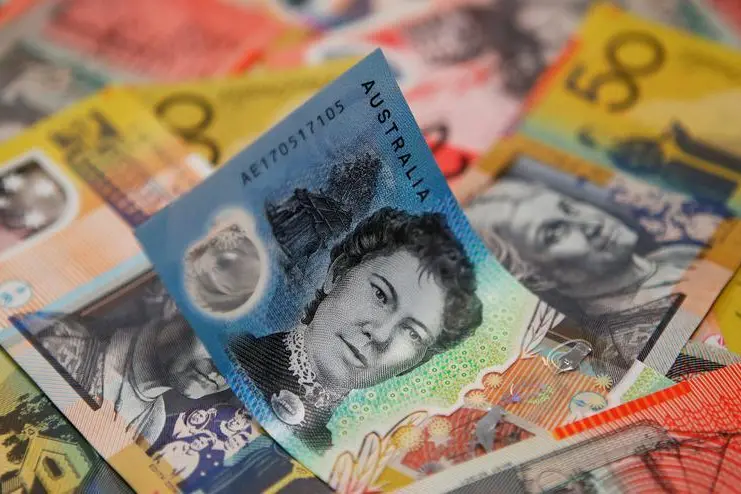PHOTO
SYDNEY - The Australian and New Zealand dollars were dealt a blow on Wednesday after the United States threatened to slap further import duties on Chinese goods, fuelling fears of a full-blown trade war.
Washington decided to impose tariffs on an extra $200 billion worth of imports from China after efforts to negotiate a solution to the dispute failed to reach an agreement, senior administration officials said on Tuesday.
The news rattled Asian markets and knocked the Australian dollar off a 3-1/2 week top to as low as $0.7407. It was last down 0.5 percent at $0.7423.
The New Zealand dollar fell 0.3 percent to $0.6815, retreating from a high of $0.6857 touched on Tuesday.
China is Australia's single biggest export market and easily the largest buyer of its commodities, so any development that risks a slowdown in China is seen as negative for the Aussie.
The currency is also used by investors as a liquid proxy for wagering China risks, global growth and resource prices in general.
The Aussie has fallen almost 1 percent since early June when worries of a trade war began surfacing after a Group of Seven summit in Canada laid bare a deep rift on trade between U.S. President Donald Trump and other leaders.
Wednesday's additional tariffs came as a surprise to many analysts who had suspected Trump's threats were a negotiating tactic.
"Fears are now strongly held this escalation will be met with a Chinese response and possibly counter-response from the United States," Greg McKenna, Sydney-based chief strategist at AxiTrader, said in a note.
"That puts the AUD/USD as an available and liquid proxy for all the worst fears about the impact of the trade war. A break of $0.7393 could open the floodgates to re-test lows."
New Zealand government bonds rose on a general safe-haven bid, sending yields about 2.5 basis points lower at the long-end and half basis point at the short-end.
Australian government bond futures gained, with the three-year bond contract up 2.5 ticks at 97.930. The 10-year contract added 2 ticks to 97.380.
(Editing by Shri Navaratnam)
© Reuters News 2018





















